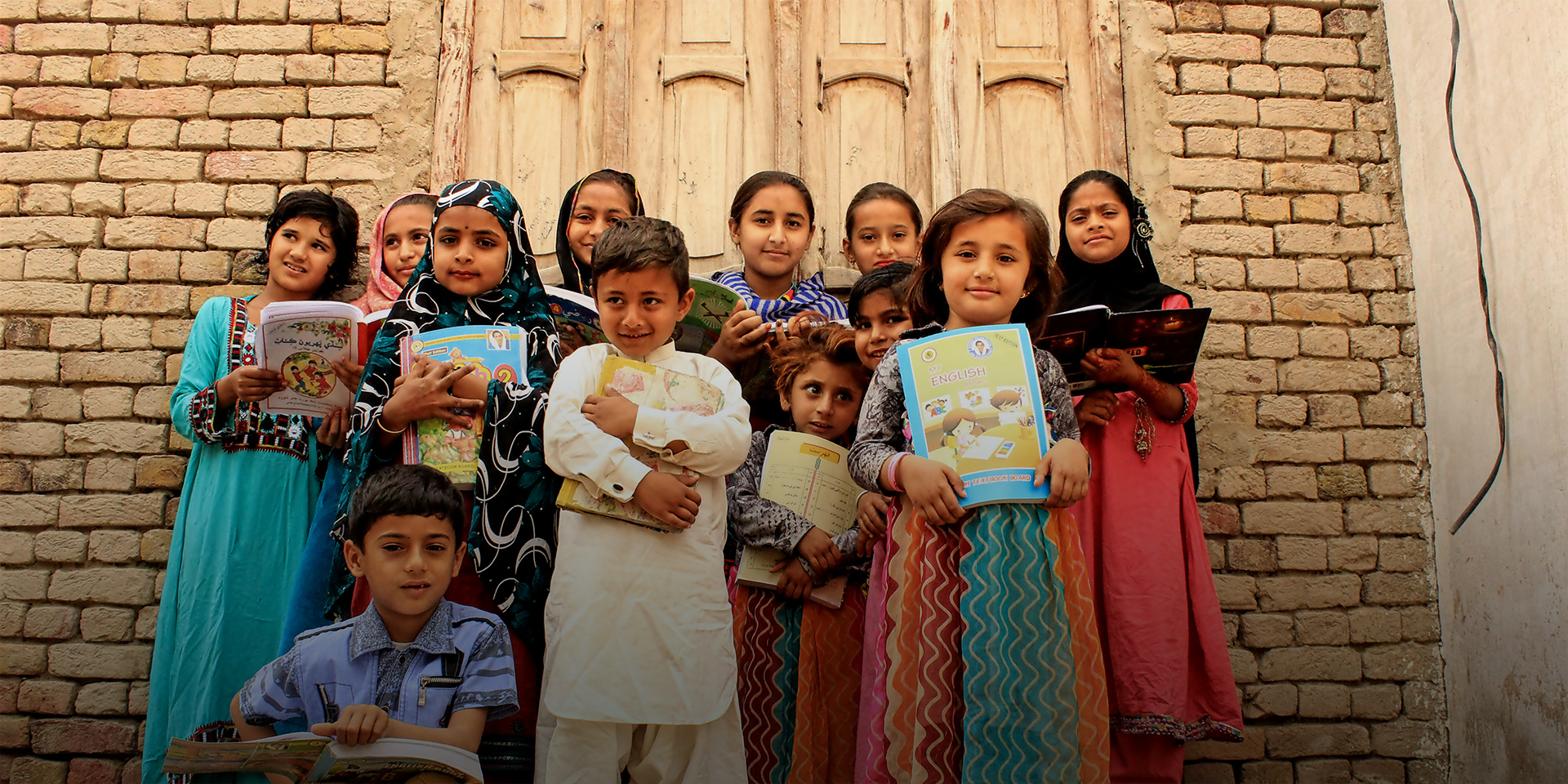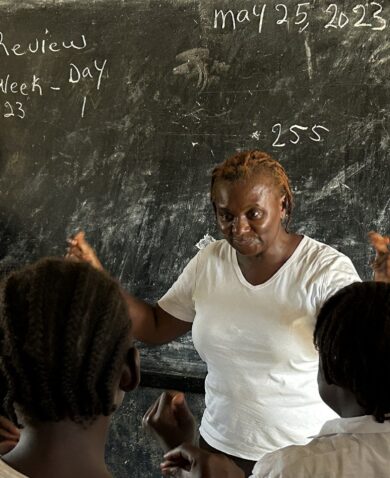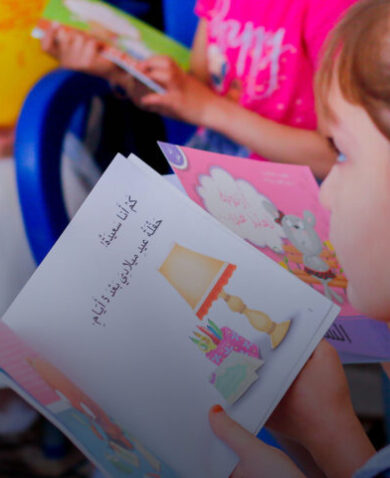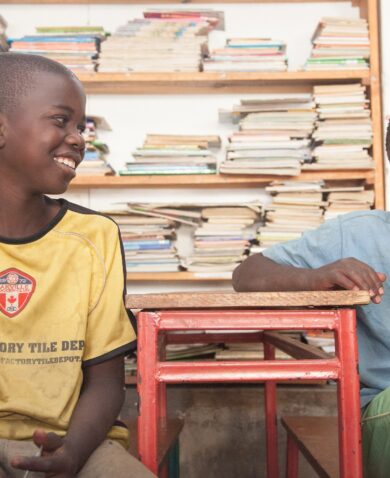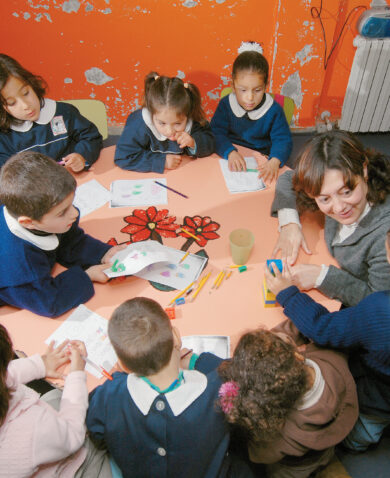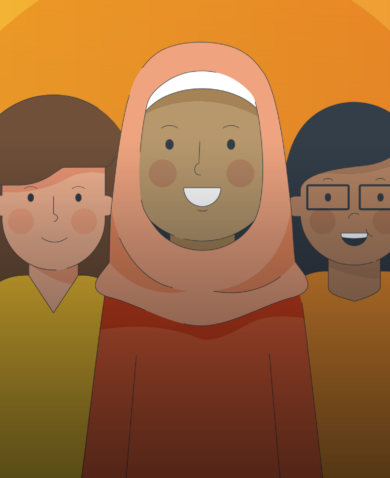So how do we support children who arrive at kindergarten (and at school, for that matter) without a large vocabulary in their mother tongue language or speak a language other than the language of instruction? We must invest in high-quality early childhood education.
What Does High-Quality Early Childhood Education Look Like?
High-quality early childhood education includes:
- A nurturing and supportive environment that encourages confident learning and positive interactions where children feel a sense of belonging.
- Teachers who are well prepared and provide engaging interactions and age-appropriate classroom environments that promote learning.
- Ongoing coaching and mentoring for all teachers to foster continual improvement of teaching and learning practices.
- Age- and context-appropriate curriculum that promotes learning across all domains and fosters curiosity and active engagement in learning.
- Engagement with parents and the community.
A significant part of high-quality early childhood education is the specific focus on knowledge, skills, and abilities that children are developing. When strategically developing necessary pre-reading skills for young children, programs that emphasize play, meaningful verbal interactions with adults and peers, and a print-rich environment give children skills that can affect their literacy and academic success in the long run. A high-quality kindergarten program (typically for 5-year-olds but also for 4-year-olds or 6-year-olds in some countries) supports children to enter first grade with the skills they need to read effectively. In developing country contexts, this often includes building vocabulary, cognitive skills, problem-solving, critical thinking, language development, print awareness, and other pre-reading skills. Programs can do this through:
1. Print-rich classroom environments and children’s books with pictures and print. Engaging environments will also include a range of materials that children can interact with. In addition to books, this may include natural materials from outdoors, materials to use for building or creating structures or art, and chalkboards or paper for students to draw on with chalk or pencils.
2. Development and roll-out of evidence-based age- and context-appropriate curriculum. This includes a holistic approach to how we support young learners that specifically addresses all domains of learning (outlined below) and the areas of learning like literacy, mathematics, and science and technology. The domains of learning are:
- Physical. Children can develop large and fine motor skills that enable them to hold books, hold chalk and pencils, and learn to draw shapes and pictures, which is a similar physical skill to learning to write letters, words, and sentences.
- Cognitive. Children can develop persistence, flexibility, problem-solving, and inventiveness in thinking skills that will benefit them when learning to decode and comprehend — the two skills that are required for all successful readers. The ability to remember and connect experiences will aid children in making sense of new information that they read and will facilitate comprehension. These skills also aid students in remaining on task.
- Language. The ability to listen to and understand increasingly complex language will support children’s vocabulary development and make it easier to identify new words when reading.
- Social-Emotional. As children learn to regulate emotions and behaviors and establish and sustain positive relationships with others, this enables them to understand the meaning of text as they decipher what is going on in a story.
3. Strategic support for teachers to help them understand and teach the knowledge, skills, and abilities children should be developing during kindergarten. Teachers need support to understand how to implement an engaging and impactful early learning experience for all children in their care that will foster each child’s learning and development. This support includes an ongoing coaching and mentoring program to support teacher reflection and learning and continual program improvement.
There is no cookie cutter approach to how to design and implement a high-quality early childhood program — context is important. However, there are certain principles and practices which have been proven to be effective in supporting all children learning. Creating a program that is intentional in supporting every child to learn, grow, and thrive is critical. Supporting teachers and leadership to continually improve program quality will make this all possible. Providing every child with an enriched and high-quality kindergarten experience will enable them to successfully learn to read in the early primary grades and to thrive academically throughout their schooling.

